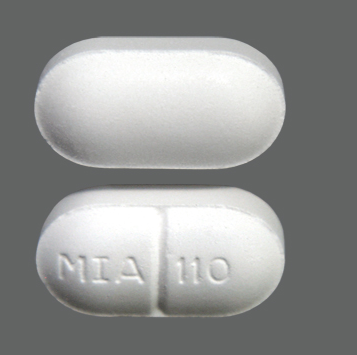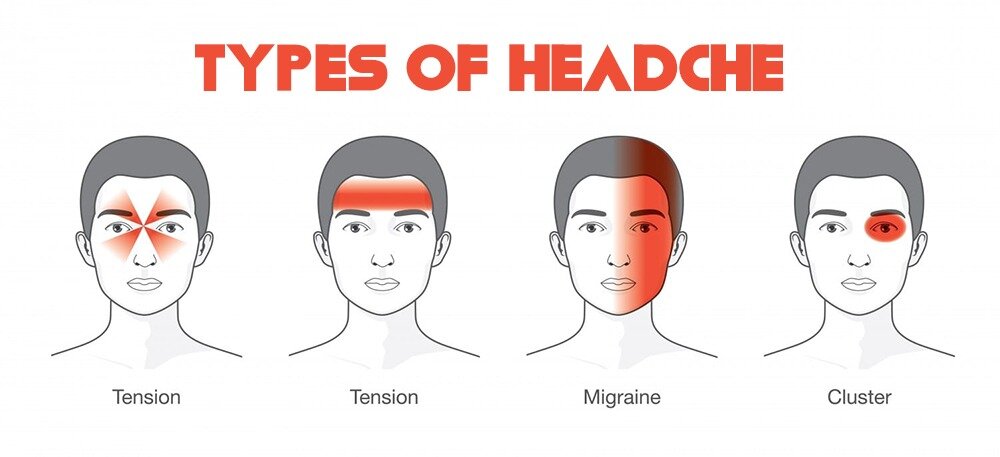If you suffer from chronic headaches, you are well aware of the disruption this can cause in your daily life. Trying to work or socialize while experiencing a headache can be quite difficult.
Migraines can make these activities virtually impossible.

The majority of those suffering from chronic headaches report that they are unable to lead a normal life. Migraine and tension headaches disrupt their work, social, and family life.
A single debilitating headache can steal many valuable hours away from a day. After unsuccessfully trying several of the headache medications available, some chronic sufferers may simply give up. Before doing this, they might want to try Fioricet. It may just be the answer they have been seeking.
Fioricet can easily be bought online or at your local pharmacy, but you will need to obtain a prescription from a physician first. Most doctors are aware of the benefits of Fioricet and will readily provide a prescription for those suffering from migraines and tension headaches.
The three active ingredients in Fioricet work together to relieve migraines and tension headaches. Fioricet is unique in that it includes acetaminophen, butalbital, and caffeine. While acetaminophen may be found in over the counter medicines, its combination with the other two ingredients is what makes Fioricet truly effective.
Butalbital is a barbiturate, which creates a sense of relaxation in the body. Caffeine further alleviates tension headaches by reducing the flow of blood to the brain. The combination of these three ingredients have provided immense relief to many chronic headache sufferers.
Fioricet comes in capsule and tablet form and is usually taken every four hours as needed. It is advised not to take more than six capsules in a day. Be sure to follow your doctor’s instructions carefully. If you feel that you are in need of a larger dose, consult your doctor first.
The butalbital in Fioricet tends to make people drowsy. It is important to stay away from driving or using heavy machinery after a dose. As with any medication, take care when using Fioricet. With the assistance of your physician, Fioricet can be taken safely, often with excellent results.
If you are interested in learning more about Fioricet, your doctor or pharmacist will be able to answer any questions or concerns you may have. Your physician will determine if Fioricet is a viable solution for your chronic headaches.
The Fioricet ‘High’ and Abuse
The butalbital in Fioricet belongs to a class of drugs called barbiturates, a central nervous system depressant. Like other barbiturates, it has the potential to cause physical and psychological dependence, which can lead to abuse.
Those who use too much Fioricet may report feeling so relaxed and stress-free that they seek out the drug as a way to get high. Some describe it as feeling intoxicated. However, users can feel depressed and “crash” once the effects wear off.
Tips
- Do not overuse Fioricet because you may become addicted to it and have difficulty stopping it.
- Over-use of Fioricet can also result in a medication-overuse headache (also known as a rebound headache) which occurs when analgesics are taken too frequently to relieve a headache.
- Never share your Fioricet with anybody else.
- May be administered without regards to food; although food may decrease any reported stomach upset.
- If you have been taking Fioricet regularly, or if you think you have become addicted to it, talk to your doctor about slowly withdrawing it, as sudden withdrawal may precipitate a withdrawal syndrome (symptoms include anxiety, dizziness, hallucinations, muscle twitching, nausea, seizures, sleeplessness, or tremor).
- Fioricet can cause sedation and affect your ability to drive or operate machinery.
- Do not drink more than two alcoholic drinks a day if you are a man or one alcoholic drink per day if you are women and taking Fioricet.
- Talk to your doctor if you have any side effects of concern. Seek urgent medical advice if you develop an allergic-type reaction (difficulty breathing or swallowing, rash, or facial swelling) soon after taking Fioricet.
- Not recommended for women who are pregnant or breastfeeding.
- Fioricet contains acetaminophen which may be “hidden” in other cough/cold medicines. The total dose of acetaminophen from any source should not exceed 4000mg per day (24 hours).
- Talk to your doctor or pharmacist before taking any other medications or natural products with Fioricet as it can interact with a large number of drugs.
How are migraines treated?
Migraines that are severe, frequent or accompanied by neurological symptoms are best treated preventively, usually with a combination of dietary modification, lifestyle changes, vitamins and daily prescription medications. Most of our best preventive medications are often used for other medical purposes as well; the majority are blood pressure drugs, antidepressants or epilepsy medications. Individual headache attacks are best treated early, often with one or more of the following types of medications: triptans, nonsteroidal anti-inflammatory drugs (NSAIDs), anti-emetics (anti-nausea), and sometimes narcotics or steroids.
Migraines typically last a few hours to a couple of days and respond well to specific treatments. However, in some patients, the migraine is particularly severe and long-lasting — and may even become chronic, occurring continuously for weeks, months or even years. If improperly managed or left untreated, intermittent migraines may essentially transform into a chronic daily headache, with continuous and smoldering symptoms that periodically erupt into a “full-blown” migraine. This condition is extremely difficult to treat.
Other patients may develop increasingly frequent headaches as a result of overusing their short-acting headache medications. See medication overuse headache. While they are considered primary headaches, meaning they have no known underlying cause, migraines are associated with an increased risk of stroke, brain scarring as seen on MRI scans, a heart defect called a patent foramen ovale (PFO) and other medical conditions.
At the Johns Hopkins Headache Center, located at the Johns Hopkins Bayview Medical center, we have expert physical therapists, nutritionists and psychologists who work closely with our neurologists to help manage patients with frequent migraines. Biofeedback and relaxation techniques are available to complement our standard medical treatments.
